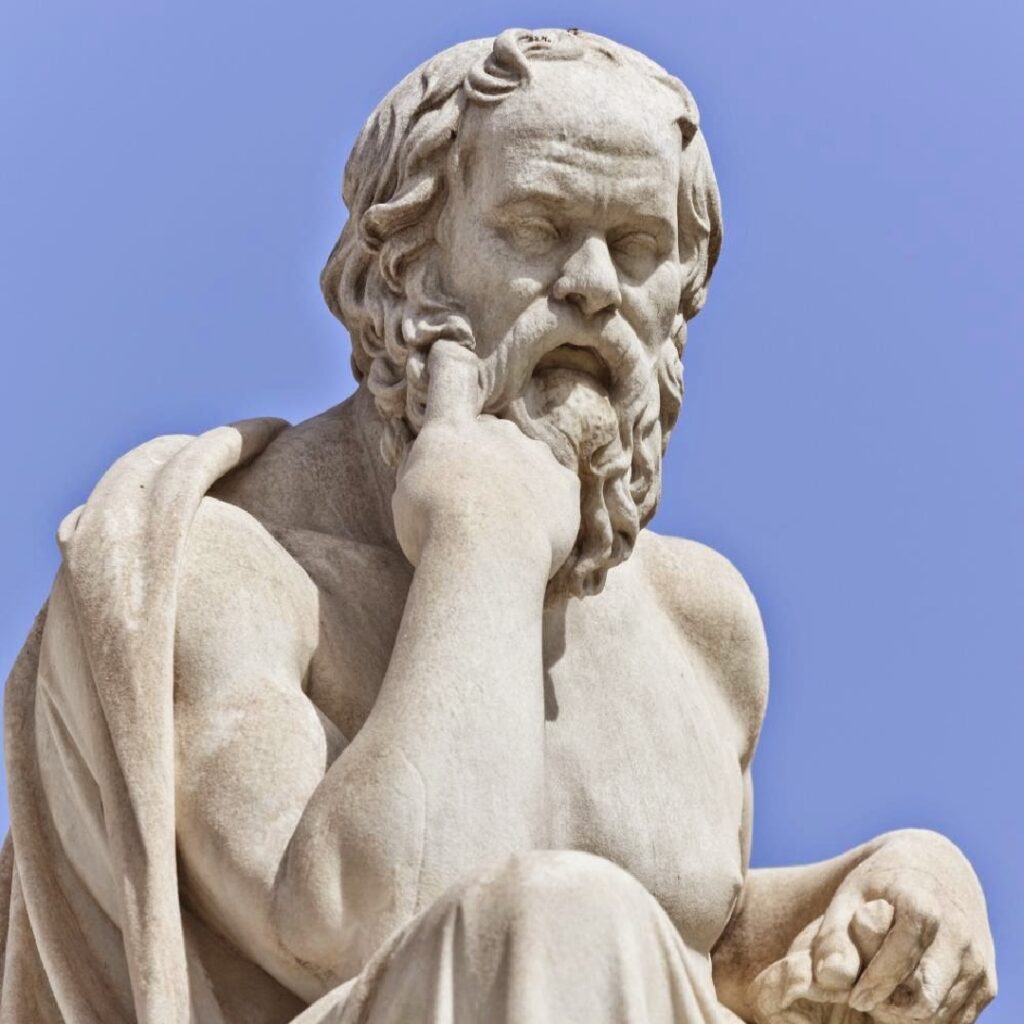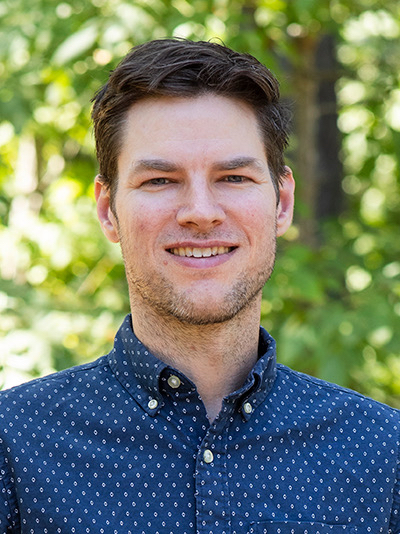PRACTICAL WISDOM SEMINAR
Wisdom, Folly, and Coping with the World
What is wisdom? How are we to act in the world when the world does not behave as we expect?
In this study we will proceed chronologically through a dozen classic texts, ancient through modern, that invite a deep exploration of these questions. Heraclitus, Ecclesiastes, Job, the Bacchae, Apology, Hamlet, Dostoevsky, Nietzsche, and more. . .
Details:
- 12-week seminar
- Weekly Mondays at 7:00pm Central
- Beginning March 23, 2026
- Seminar leader: Jesse Peterson

PRACTICAL WISDOM SEMINAR
Wisdom, Folly, and Coping with the World
What is wisdom? How are we to act in the world when the world does not behave as we expect?
In this study we will proceed chronologically through a dozen classic texts, ancient through modern, that invite a deep exploration of these questions. Heraclitus, Ecclesiastes, Job, the Bacchae, Apology, Hamlet, Dostoevsky, Nietzsche, and more. . .

Details:
- 12-week seminar
- Weekly Mondays at 7:00pm Central
- Beginning March 23, 2026
- Seminar leader: Jesse Peterson
The Wisdom of The Ages
Just 10 Daily Pages
3-10
pages per day
1
seminar per week
12
Weeks
The Wisdom of The Ages
Just 10 Daily Pages
3 - 10
pages per day
1
seminar per week
12
weeks
What is wisdom? And what is its supposed opposite, folly? How are we to act in the world when the world does not behave as we expect? Is the human being rational by nature? Or irrational? In this 12-meeting seminar we will proceed chronologically through a dozen classic Western texts that invite the deepest exploration of these questions.
Starting with the ancient philosopher-poets Heraclitus and Ecclesiastes, proceeding through the Bible’s suffering sage, Job, and Socrates’ classic trial-defense, the Apology, we will move into the modern period with works from Erasmus and Shakespeare that challenge simplistic understandings of wisdom by their complex portrayals of folly and madness.
We conclude the course with great existential thinkers who grappled with the tension between the rational and the irrational parts of the soul—Dostoevsky and Nietzsche.
The seminar explores both philosophical and narrative approaches to deeply philosophical questions (Job, Euripides’ The Bacchae, Shakespeare’s Hamlet, Voltaire’s Candide, Dostoevsky’s Notes from the Underground) along with other works that read more like intellectual autobiographies than philosophical treatises (Ecclesiastes, Plato’s Apology, Marcus Aurelius’s Meditations, Montaigne’s “On Experience”).
Course Schedule:
Week 1: Heraclitus (selections) and Ecclesiastes (~30 pgs)
Week 2: The Book of Job (~30 pgs)
Week 3: Euripides – The Bacchae (~70 pgs)
Week 4: Plato – Apology (~20 pgs)
Week 5: Marcus Aurelius – Meditations (selections, (~50 pgs)
Week 6: Erasmus – In Praise of Folly (selections, ~50 pgs)
Week 7: Shakespeare – Hamlet, part 1 (~70 pgs)
Week 8: Shakespeare – Hamlet, part 2 (~70 pgs)
Week 9: Michel de Montaigne, “Of Experience” (~50 pgs)
Week 10: Voltaire – Candide (~70 pgs)
Week 11: Fyodor Dostoevsky – Notes from the Underground (~50 pgs)
Week 12: Friedrich Nietzsche – The Gay Science (selected passages) (~50 pgs)

Meet Your Seminar Leader
Dr. Jesse Peterson is an assistant professor of biblical studies at George Fox University, in Newberg, Oregon. He teaches biblical and classical literature, and is on the core faculty of the Great Books Honors Program.
Jesse earned a PhD in Hebrew Bible from Durham University (UK) in 2021. His first book, Qoheleth and the Philosophy of Value (Cambridge University Press, 2025) is an exegetical and philosophical study of Ecclesiastes. His academic research brings biblical texts and traditions into dialogue with philosophy, both ancient and modern.
Meet Your Seminar Leader

Dr. Jesse Peterson is an assistant professor of biblical studies at George Fox University, in Newberg, Oregon. He teaches biblical and classical literature, and is on the core faculty of the Great Books Honors Program.
Jesse earned a PhD in Hebrew Bible from Durham University (UK) in 2021. His first book, Qoheleth and the Philosophy of Value (Cambridge University Press, 2025) is an exegetical and philosophical study of Ecclesiastes. His academic research brings biblical texts and traditions into dialogue with philosophy, both ancient and modern.
Frequently Asked Questions
Reading the great books can seem daunting, but it doesn’t have to be. That’s why we created a community where you can:
Who can read the great books?
Anyone can read these books. Even if you aren’t the strongest reader, even if you haven’t read in years.
These books are for everyone, and we read them in an unpretentious way. Most of our members are not academics, and many of them don’t have college educations.
However, these books will challenge you. They can sound a little different, and have big ideas.
It’s our mission to make these books approachable. Our experienced guides know how to guide you through challenging readings to help anyone get the most out of them.
When and where are we meeting?
We meet online and have members all over the world. This is the best way for us to bring together like minded individuals on a schedule that works for busy people. The online format also enables us to use note taking and small group organization that just aren’t possible in person.
The frequency of meetings depends on how you choose to get involved. Our seminar program is a once monthly meeting, and our special seminars come in weekly and monthly formats. These meetings are all typically in the evenings in the U.S. time zones, but, if you want to get involved, and these times don’t work for you, please contact [email protected]
Will I feel stupid when we read and discuss these books?
Yes, and no.
These books are for everyone, and we read them in an unpretentious way. Most of our members are not academics, and many of them don’t have college educations.
However, these books will challenge you. They can sound a little different, and have big ideas.
It’s our mission to make these books approachable. Our experienced guides know how to guide you through challenging readings to help anyone get the most out of them.
What are the other members like?
Most of our members are not academics, and many of them don’t have college educations. The live all over the world, and have a variety of hobbies, interests, faiths, professions, and backgrounds.
The thing that brings all of us together is our common goal to discuss the big ideas together in an honest and inquisitive way.
Will I do more than just read?
Our members often say that they “came for the books, but stay for the people.”
The thing that they enjoy most about our community is our discussions. They love that we have a cultivated community where people can comfortably discuss the big ideas – even if they are touchy subjects in your everyday life.
